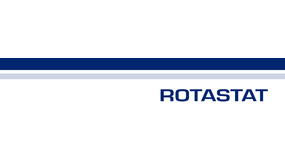Survive and prosper as a supplier in the global aerospace industry
The theme of this year’s MAA conference is what companies need to do to survive and prosper supplying the global aerospace industry – with a special focus on small UK companies.
A full line-up of prestigious keynote speakers will present their expert views – complemented with ideas presented by some of our smaller companies.
Below are the topics our six keynote speakers will speak about.
For speaker biographies click here.
For the conference agenda, location and booking information click here.
Colin Smith, Director of Engineering & Technology, Rolls-Royce
UK aerospace in a global context: are we doing all we can to maintain our leading position?
The UK civil aerospace industry is the second largest in the world and still growing. Colin Smith will describe the position of Rolls-Royce within the industry today. He will offer insights into the forecasted growth and the challenges and opportunities that Rolls-Royce and its supply chain face in this context. He will also discuss how the critical collaboration within the industry, with regional and governmental agencies, and with the education community can help the UK aerospace industry maintain its leading position.
Andreas Schell, President, Actuation & Propeller Systems, UTC Aerospace Systems
Globalisation of the aerospace industry: what it means for UK suppliers.
Andreas will start by reviewing the new structure of UTC Aerospace Systems, and the Actuation Systems business within it. He will analyse the global challenges all aerospace businesses face, before addressing what UTC Actuation Systems in Wolverhampton is doing to stay competitive. Andreas will then set out with examples how his company tells the difference between good suppliers and poor suppliers, concluding with his thoughts about how small companies can prosper in tomorrow's aerospace industry.
Philip Dunne MP, Minister For Defence Equipment, Support and Technology, Ministry of Defence
Prospering in a competitive defence market: the role of the SME.
The UK has a world leading defence industry, delivering the UK Armed Forces with battle-winning equipment. It also has an important role to play in delivering export led growth and a rebalancing of the UK economy. Small and Medium Sized Enterprises, often working alongside larger companies, provide the innovation and competitiveness that help deliver such a world leading sector. In his speech, Philip Dunne, the Minister responsible for defence procurement and exports, as well as the Ministry of Defence’s Ministerial lead for SMEs, will address some of the initiatives this Government has pursued to give SMEs greater opportunities in defence, as well as current developments in defence reform.
Sir Brian Burridge, Vice President Strategic Marketing, Finmeccanica
Pushing Defence capability to market
The UK Defence Aerospace sector has an enviable export record based on leading-edge technology backed-up by the notion that the seal of approval of the UK Armed Forces speaks volumes. But, both these aspects are changing. So, has the traditional requirement-driven, platform-based model had its day? Does it simply now lack the agility to meet global market demand in an intensely competitive environment and is it missing the significance of novel, niche technology within the SME community? This address will explore the future technology environment, consider the alternative models and explain how some of these ideas are being embraced in the UK’s Defence Growth Partnership.
Colin Sirett, Head of Research and Technology, Airbus in the UK
What should the UK do to address the challenges and benefit from the growth of civil aerospace?
Global demand growth, environmental requirements and competitive pressures are creating both a threat and an opportunity for UK aerospace companies. What should be our priorities to secure future positions in this ever-growing market? Colin will offer an Airbus perspective on this question with a special focus on drawing out implications for the UK aerospace supply chain.
Robert W Thomson, Partner, Roland Berger Strategy Consultants
What the world’s aerospace industry leaders are thinking: implications for the supply chain.
Over the last 5-10 years, a number of trends have become well-established in the supply chains of the major aerospace companies, including prime contractors becoming system integrators, "tiering" of the supply chain, the flow down of cost and risk, and the shift to low labour cost regions. As these trends develop and evolve, Robert Thomson will discuss how the impact on the supply chain continues to be felt, and address the following questions. How will the balance between the civil and defence sectors shift? What will the next stages of globalisation bring? How can UK-based suppliers compete in future?
For speaker biographies click here.
For the conference agenda, location and booking information click here.






